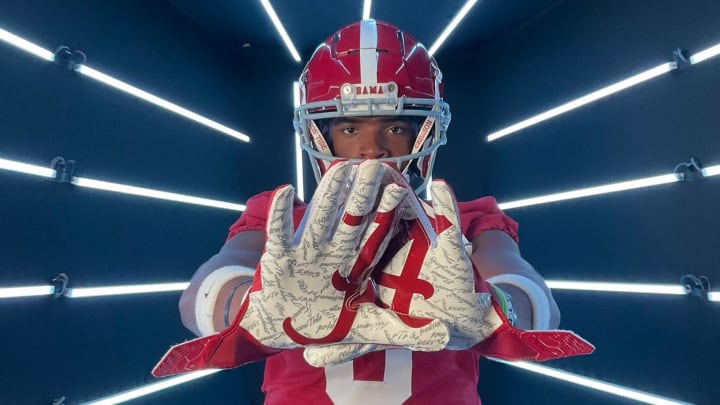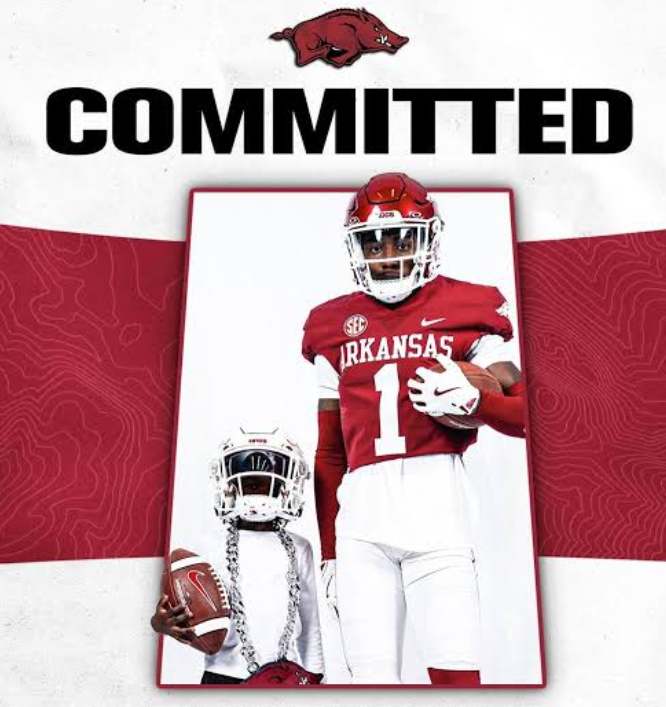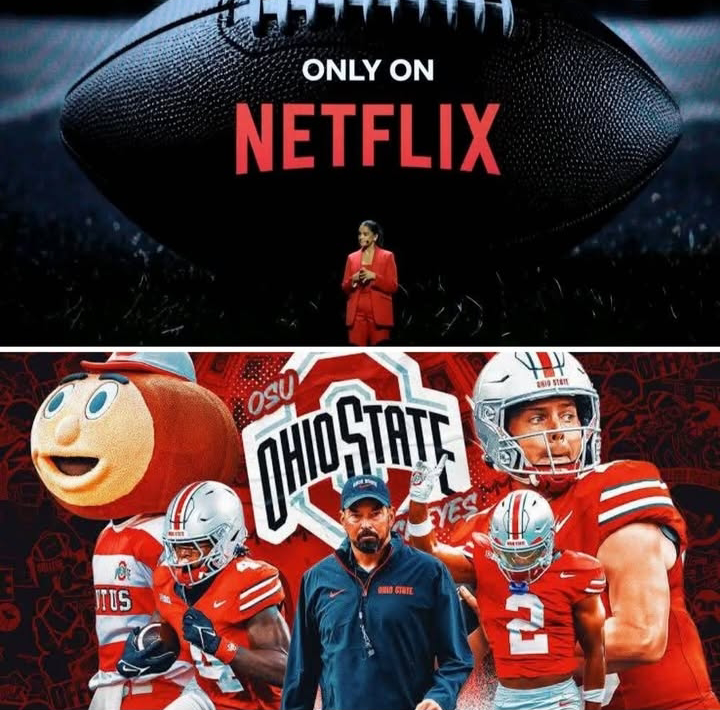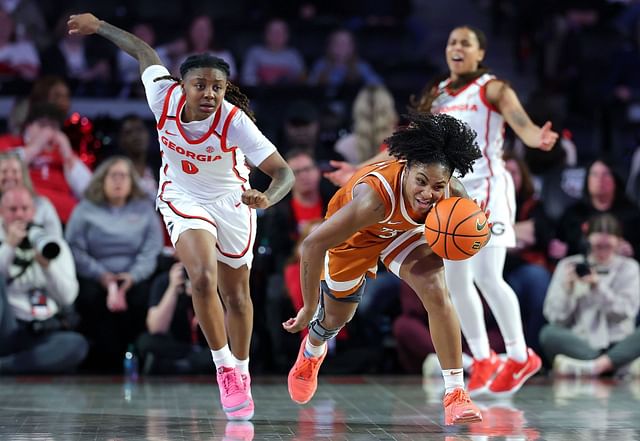In the world of college football, rivalries are one of the most intense aspects of the game, often serving as the backdrop for some of the sport’s most unforgettable moments. Whether it’s on the field, in the locker room, or on social media, every move is scrutinized, and emotions run high. In one of the most talked-about moments of the 2024 season, Florida’s George Gumbs Jr. became the center of controversy when he planted the Florida Gators’ flag at the 50-yard line of Florida State’s Bobby Bowden Field after the Gators’ thrilling victory over the Seminoles.
What was initially seen as an impromptu celebration quickly turned into a flashpoint for debate, with fans, analysts, and even players weighing in on whether it was a disrespectful act or just a passionate expression of rivalry. Despite the backlash, George Gumbs Jr. has remained unapologetic. In fact, he has doubled down on his actions, making it clear that he would do it again if given the chance.
Here’s a deeper look into the flag planting incident, the motivations behind it, and why Gumbs Jr. has no regrets about making one of the boldest statements in recent college football history.
### The Setup: Florida vs. Florida State
Florida and Florida State have one of the most intense and storied rivalries in college football. Known as the “Sunshine Showdown,” this annual battle between the two Florida powerhouses is filled with high stakes, deep history, and plenty of passion from both fanbases. The games are often not just about football but about pride, bragging rights, and a sense of state supremacy.
For Gumbs Jr., this game meant more than just securing a victory. As a key player on the Florida Gators, a win over their rivals from Tallahassee would not only keep the Gators’ season alive but also give them bragging rights for the entire year. In a game that was filled with tension, back-and-forth momentum swings, and big plays from both sides, Florida emerged victorious, winning the game in dramatic fashion.
After the final whistle blew, emotions ran high. Players celebrated in a variety of ways, with many of them embracing each other, waving to fans, or relishing the significance of the win. But Gumbs Jr.’s celebration was unlike anything anyone had seen in recent years. With the victory secure and his teammates pumped up, he ran to the 50-yard line of the field, planted the Florida Gators flag firmly into the turf, and waved it high for all to see.
### The Flag Planting: A Bold Statement
The flag plant was a dramatic moment that quickly captured the attention of fans, players, and media alike. As the camera zoomed in on Gumbs Jr. holding the flag proudly, some saw it as a bold expression of triumph. Florida had just defeated a highly ranked Florida State team in their home stadium, and Gumbs Jr. was simply relishing the moment. In his eyes, it was about taking ownership of the field and letting Florida State know that the Gators had arrived, both literally and symbolically.
But for many others, especially FSU fans and some former players, the flag planting was seen as an act of disrespect. College football rivalries are often fueled by strong emotions, and such celebrations are typically viewed as provocative, especially when they happen on an opponent’s home turf. To some, it felt like Gumbs Jr. was disrespecting the legacy of Florida State football and the players who had battled on that very field.
While it’s common to see celebrations after major victories, such acts of boldness—like flag planting—are rare, and when they happen, they stir up plenty of debate. This was no different, as the debate about Gumbs Jr.’s actions quickly became a hot topic of conversation.
### George Gumbs Jr.’s Perspective: No Regrets
In interviews following the game, George Gumbs Jr. was unequivocal about his actions. When asked whether he regretted planting the flag at FSU’s 50-yard line, he didn’t hesitate with his response: “I would do it again.” For Gumbs Jr., the flag planting was a statement—a declaration of his team’s dominance and a chance to leave a memorable mark on a storied rivalry.
The defensive back, who had been a key player for Florida in the win, expressed that the moment wasn’t about disrespecting FSU or its players; it was about celebrating a hard-earned victory. “This game was everything. We came out here and played our hearts out, and that flag plant was just a way for me to let the world know we did it,” Gumbs Jr. explained. “We won, we earned it, and we weren’t going to shy away from showing how proud we were of that.”
Gumbs Jr. emphasized the significance of the win, noting that it wasn’t just about the rivalry but about the Gators’ season and the effort his teammates put into securing the victory. Florida had been through ups and downs throughout the year, and the win over Florida State was a moment of redemption. For Gumbs Jr., planting the flag at FSU’s 50-yard line was simply the icing on the cake.
### Rivalries in College Football: A Fine Line Between Respect and Disrespect
Flag planting, however, is not just a fun celebration; it’s also a symbol of crossing a line. In the world of college football, rivalries can get ugly quickly, and acts of perceived disrespect can ignite a firestorm of controversy. Historically, teams have been known to celebrate after big wins, but flag planting carries a different connotation, as it can be seen as staking a claim to an opponent’s territory. It’s a bold declaration that can provoke strong reactions from the other side.
In the case of Florida and Florida State, the rivalry runs deep. Both programs have national championships, All-American players, and a rich history. For Florida State, losing at home to their bitter in-state rival, with the added drama of a flag being planted in the middle of their field, felt like a personal affront. For many fans, the flag symbolized the Gators asserting dominance in a way that was perceived as disrespectful. On the other hand, for Florida fans, it was a victory lap—a statement of “we were here, and we came out on top.”
Despite the criticism, Gumbs Jr. remained unfazed. His explanation and confidence in his actions reflect the competitive nature of college football and the pride players take in representing their teams. In a way, the flag planting was a microcosm of the rivalry itself—a battle of emotions, egos, and history, all culminating in one unforgettable moment.
### The Fallout: A Controversial Yet Memorable Moment
After the game, social media exploded with reactions. Florida State fans voiced their displeasure on Twitter, calling Gumbs Jr.’s act disrespectful, with many pointing to previous instances where similar flag plantings had been seen as taunts in other rivalries across the country. Several Florida State players, including some former Seminoles, weighed in, expressing their frustration with the celebration and calling for greater respect in future matchups.
On the flip side, Florida fans rallied behind Gumbs Jr., applauding his boldness and asserting that the flag plant was simply a reflection of the Gators’ dominance in the game. “It was a statement,” one Florida fan wrote. “We took their house, and we let them know. Gators don’t back down.”
For Gumbs Jr., the negative feedback didn’t phase him. “Football is about passion. It’s about putting everything you’ve got into the game,” he said. “That flag wasn’t to disrespect anyone, but to show that we earned that win. This game, this rivalry—everything—it’s about pride. I’m proud of what we did, and I’d do it again.”
### The Bigger Picture: Rivalry Culture in College Sports
The controversy surrounding George Gumbs Jr.’s flag plant serves as a reminder of the emotional intensity that defines college football rivalries. These moments—whether celebratory or controversial—are what make the sport so special. College football is often about more than just Xs and Os; it’s about pride, passion, and, at times, letting your emotions overflow.
In the end, Gumbs Jr.’s flag plant will likely go down as one of the most talked-about moments of the 2024 season, adding yet another memorable chapter to the Florida vs. Florida State rivalry. It will also serve as a reminder of the fine line players walk when it comes to celebrations. While some fans may view it as disrespectful, others see it as an expression of pure joy and pride for their team.
For George Gumbs Jr., though, the answer remains clear: “I would do it again.” The flag plant was more than just a moment of celebration—it was his way of marking a victory that would go down in history. And in the end, that’s what college football is all about.






Leave a Reply